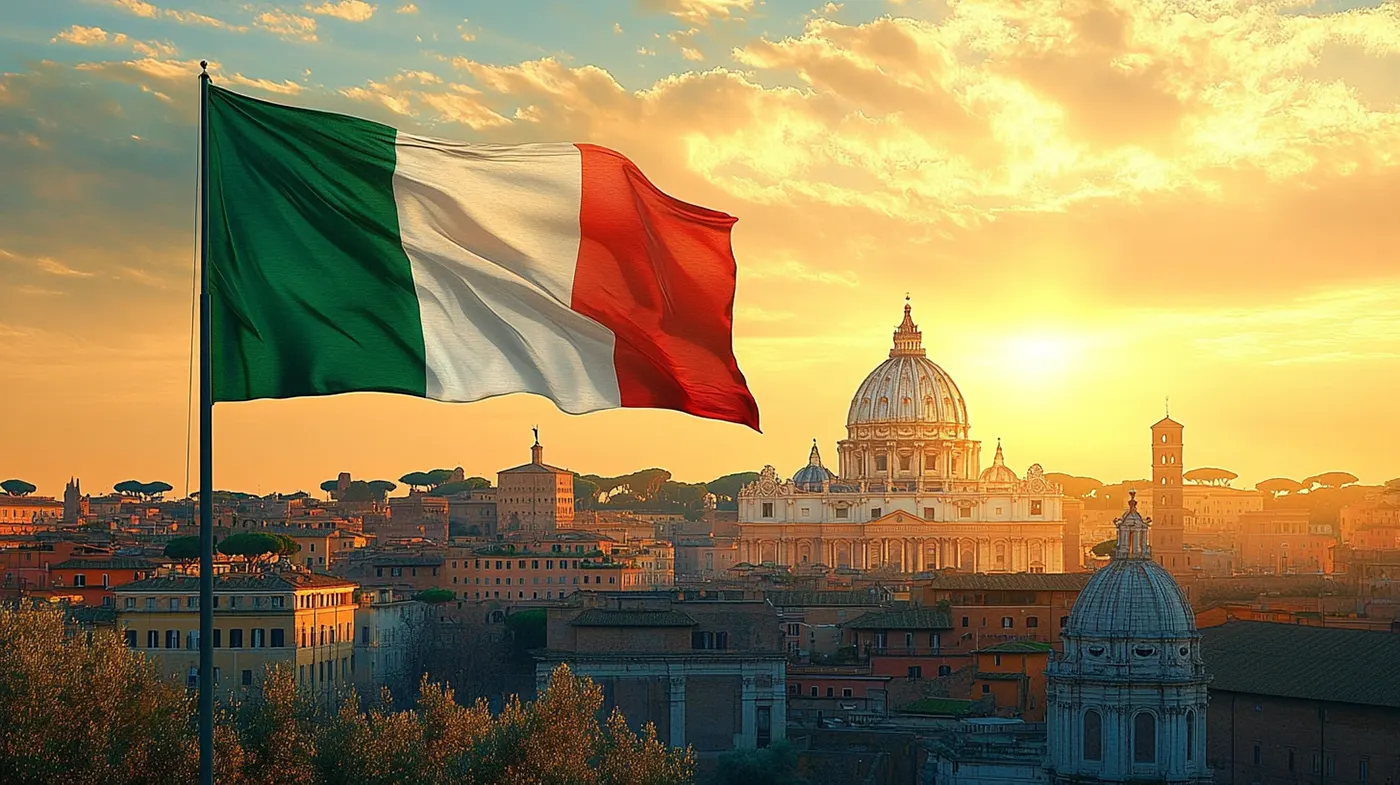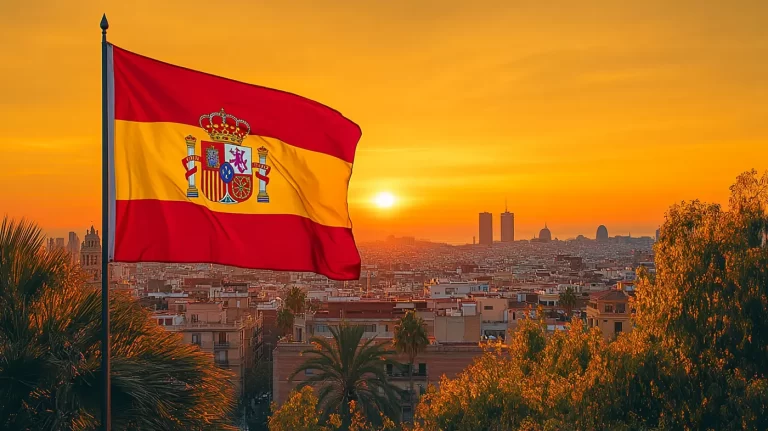Are you thinking of moving to Italy from the UK?
Swapping the grey skies of the UK for the vibrant lifestyle of Italy is a dream shared by many.
Italy presents an irresistible proposition, whether it’s the sun-drenched coastlines, peaceful countryside retreats, or the cultural pull of historic cities.
Life here moves gentler, with excellent food, strong community ties, and stunning surroundings playing a central role. But before you pack your bags, there’s plenty to consider.
From visa requirements and job opportunities to navigating Italy’s healthcare and property systems, planning your move properly is essential.
That’s where R.H. Pardy Moving & Storage comes in – we’ve been handling international removals since 1924, offering the expertise and care you need for a seamless relocation to Italy.
1. Visa and Residency Requirements for UK Citizens

Post-Brexit, British citizens are no longer able to live or work freely in Italy without the correct documentation. If you plan to stay for more than 90 days, you will need a visa suited to your purpose – for example, an elective residency visa for retirees, a work visa, or a visa for self-employment.
Once in Italy, apply for a permesso di soggiorno (residence permit) within eight days of arrival at your local Questura (police station). You’ll also need to register with the local town hall (comune).
For up-to-date guidance on visa types and application procedures, visit the Italian Ministry of Foreign Affairs or the UK Government’s guide to living in Italy.
2. Cost of Living in Italy

Italy’s cost of living varies considerably by region. Cities such as Milan and Rome tend to be more expensive, particularly for rent, whereas towns in regions like Abruzzo, Le Marche, or Sicily offer a more affordable lifestyle.
Everyday expenses – including groceries, transport, and utilities – are often lower than in the UK. Markets offer fresh local produce at reasonable prices, while even dining out is generally more budget-friendly than in the UK.
To compare costs between your current location and Italy, take a look at the live data on Numbeo.
3. Finding Work in Italy

Although Italy’s job market can be competitive, there are opportunities in sectors such as healthcare, IT, education, tourism, and hospitality. Fluency in Italian will greatly improve your chances, but there are English-speaking roles in international companies, particularly in larger cities.
To legally work in Italy, you’ll need a relevant visa and a permesso di soggiorno. Job portals like Just Landed and GoAbroad are helpful starting points for expats.
4. Renting or Buying Property in Italy
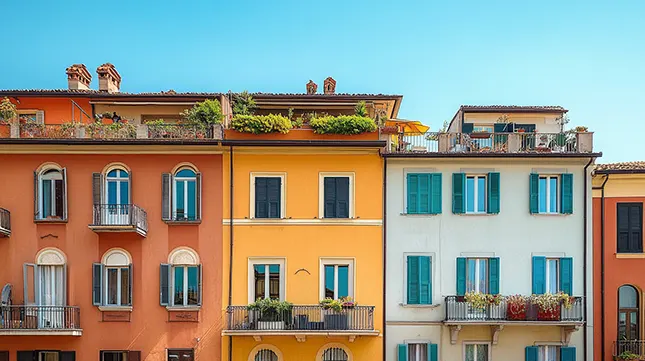
Many newcomers choose to rent before buying to get a feel for an area. Rental contracts usually require two or three months’ deposit, and prices vary significantly depending on location.
Websites such as Idealista are a useful tool for browsing rental properties.
Buying property in Italy is relatively straightforward for foreign nationals, but you’ll need a codice fiscale (tax code), legal assistance, and to factor in taxes and notary fees.
For expat-friendly property listings, try Gate-away or refer to Idealista’s buying guide.
5. Taxes in Italy
Once you become a resident, you’re subject to tax on your worldwide income.
The codice fiscale is essential – you’ll need it to open a bank account, rent or buy a home, and pay tax. It’s issued by the local Agenzia delle Entrate.
Expect to pay income tax, property tax, and social security contributions. The VAT rate is typically 22%, though some essential goods are taxed at a lower rate.
For more detailed information or to seek tailored advice, Experts for Expats is a great resource.
6. Healthcare in Italy

Italy offers high-quality public healthcare through the Servizio Sanitario Nazionale (SSN).
Once registered as a resident, you can access GP services, hospitals, and subsidised prescriptions.
Registration with the local ASL (health authority) is required, and you’ll be asked to choose a general practitioner.
Many expats opt for private health insurance – particularly during the initial phase before public coverage is in place.
Providers like Bupa offer comprehensive expat-friendly plans. More guidance is available via the UK government’s healthcare page.
7. Education and Schooling in Italy

Children between 6 and 16 must attend school in Italy. Public schools are free and generally offer a high standard of education, though classes are taught in Italian.
International schools are popular among expats, especially in cities like Rome and Milan.
These schools follow curricula in English or offer the International Baccalaureate, providing continuity for globally mobile families.
St. George’s British International School in Rome is a popular choice.
8. Currency Exchange and Financial Planning

The pound-to-euro exchange rate can significantly affect your purchasing power.
Partnering with a specialist FX company allows you to secure better rates than most high-street banks offer.
Services like Wise, Halo Financial, or CurrencyFair are designed to help expats transfer money abroad securely and cost-effectively.
9. Customs and Import Regulations
You can usually import used household goods duty-free if you’ve lived outside Italy for 12 months and owned them for at least six months.
However, you must declare your shipment and supply relevant documentation, such as your residence certificate and packing list.
Prohibited or restricted items include firearms, certain plants, and excess alcohol.
For a full breakdown, download the FIDI customs guide for Italy.
10. Transporting Your Belongings

R.H. Pardy offers both full and part-load European removals. Our full-load option is ideal for whole-house moves, while part-load services are cost-effective for smaller shipments.
We’ll take care of professional packing, customs clearance, secure transport, and storage solutions in both the UK and Italy – so you can focus on settling into your new home.
11. Driving in Italy
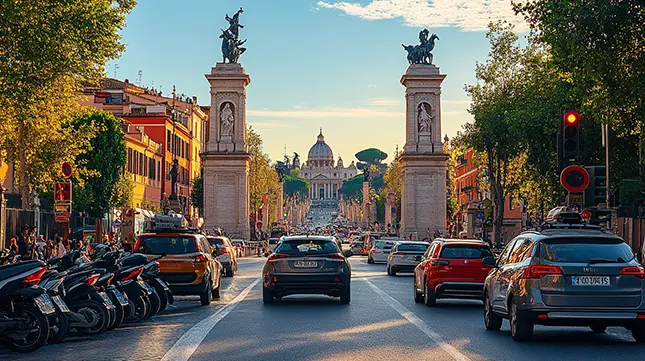
You can use your UK driving licence for short visits.
For longer stays, exchange it for an Italian one within 12 months of becoming a resident. After that, a driving test may be required.
Italy has strict traffic laws, and many city centres have ZTLs (restricted traffic zones).
Learn more about driving regulations via the AA’s Italy driving guide.
12. Bringing Pets to Italy

Yes, pets can accompany you to Italy, provided they’re microchipped, vaccinated against rabies, and issued an Animal Health Certificate (AHC) within 10 days of travel.
You can find full guidance on the UK government’s pet travel rules. No quarantine is required if all paperwork is in order, but check specific airline policies before booking.
13. Learning the Language
While English is spoken in some tourist and urban areas, learning Italian will greatly improve your experience. Local services, documents, and interactions are often in Italian.
Tools like Duolingo and Babbel are great for beginners, while local language schools provide immersion opportunities.
14. Understanding Italy’s Climate
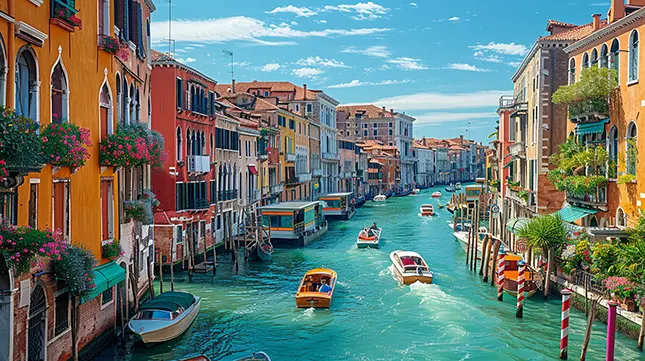
Italy offers an impressive variety of climates.
In the south, expect long, hot summers and mild winters. In contrast, northern regions like the Alps and Dolomites offer snowy winters ideal for skiing.
From Mediterranean coastlines to mountain retreats, there’s a setting to suit every lifestyle.
Ready To Start moving to Italy from the UK?

If you are thinking of moving to Italy from UK, we are here to help!
We have decades of experience handling removals throughout the UK and Europe.
Our customer-centric approach to removals has earned us critical acclaim.
We also offer flexible self-storage options to our customers either as part of a tailor-made removals package or as a standalone service.
All our experienced staff are fully trained in all aspects of the removal industry.
This combined with excellent communication and customer service is what marks us out as the premier removal firm when moving to Italy.
To find out how R.H Pardy’s removals service can work for you don’t hesitate to contact us on the number listed above or use the quick quote form.

